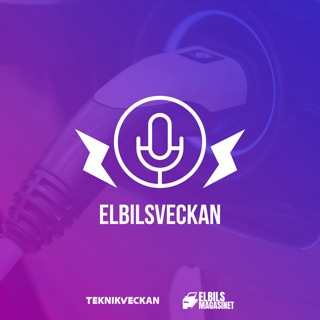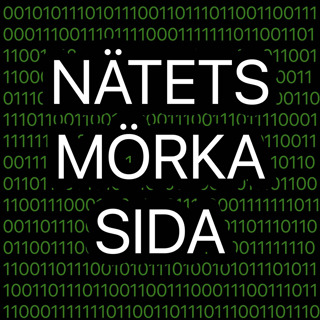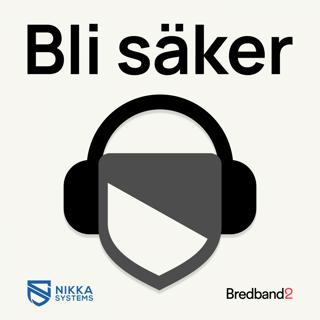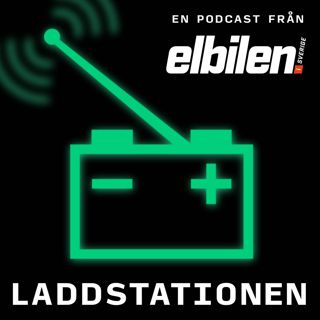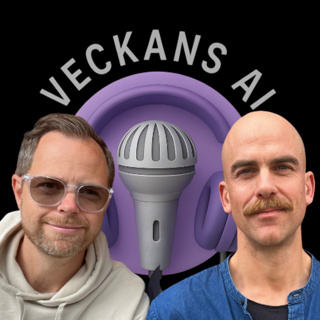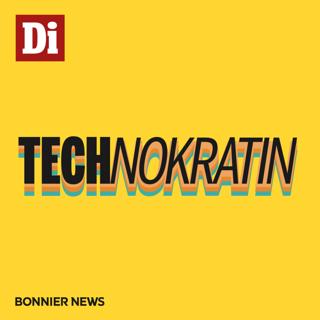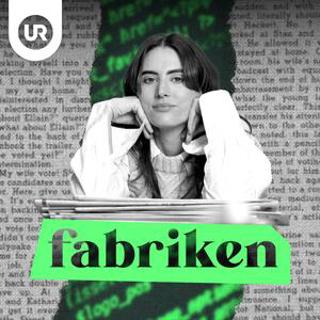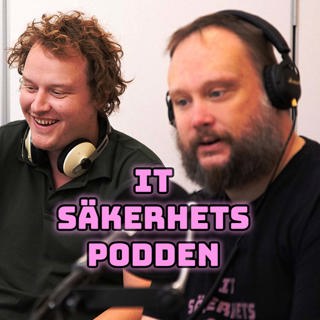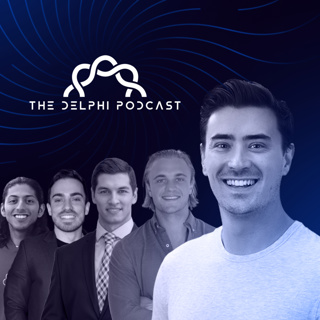
The Innovation Game: The Market-Driven Approach to Solving Big Science Problems
TIG (The Innovation Game) is a decentralized science project designed to accelerate algorithmic innovation. It uses a coordination protocol and proof of work to discover the most efficient algorithms for scientific problems. The project originated in 2012 with the goal of addressing the lack of open development and funding for scientific research. TIG aims to bring real utility to the world using blockchain technology and is an outlier in the crypto space. The network consists of supply side actors (benchmarkers and innovators) who submit and improve algorithms, and demand side actors (miners) who use the algorithms to mine and provide market signals. The Innovation Game (TIG) aims to discover the most efficient algorithmic solutions to scientific problems. TIG focuses on solving problems that are hard to solve but easy to verify. The selection of problems is done by a committee of scientists and domain experts. TIG currently has challenges in Boolean Satisfiability, Knapsack Problem, Capacitated Vehicle Routing, and Vector Search. These problems have applications in various industries, including hardware design verification, logistics optimization, and AI. TIG plans to add more challenges and aims to onboard several hundred more challenges over the next three to five years. The network captures the value it creates through IP licensing, using a dual licensing model. TIG offers an open data license for academics and open source enthusiasts and a commercial license for corporations. The commercial license fees are payable in TIG tokens, generating demand for the token. TIG's go-to-market strategy includes targeting universities, crypto and science societies, and leveraging industry connections. The roadmap includes transitioning to a layer one blockchain and adding a deposit requirement for benchmarkers. TIG aims to bring in more innovators, particularly from the academic world, by providing a tangible value that can fund their research. Dr Fletcher's Twitter/X: https://x.com/dr_johnfletcher Chapters: 00:00 Introduction to TIG 02:00 Proof of Work in TIG 03:26 Origin of TIG 11:08 TIG as an Outlier in Crypto 15:16 Role of Benchmarkers, Innovators, and Miners 18:07 Rewards for Innovators and Benchmarkers 24:06 Purpose of Proof of Work in TIG 26:03 Using Synthetic Problems in TIG 28:18 Discovering Efficient Algorithmic Solutions 29:39 Hardware and Algorithm Development 31:05 Challenges in Various Industries 34:22 Problem Selection and Importance 41:36 Capturing Value through IP Licensing 46:36 Go-to-Market Strategy and Onboarding Challenges 51:13 Roadmap: Transitioning to a Layer One Blockchain 53:33 Adding Deposit Requirement for Benchmarkers 55:19 Bringing in Innovators from the Academic World Disclaimer: This podcast is strictly informational and educational and is not investment advice or a solicitation to buy or sell any tokens or securities or to make any financial decisions. Do not trade or invest in any project, tokens, or securities based upon this podcast episode. The host and members at Delphi Ventures may personally own tokens or art that are mentioned on the podcast. Our current show features paid sponsorships which may be featured at the start, middle, and/or the end of the episode. These sponsorships are for informational purposes only and are not a solicitation to use any product, service or token.
30 Aug 202456min

Himanshu Tyagi: Sentient's $85m Raise To Build An Alternative to OpenAI Through Monetizable Open Source Models
Himanshu, a core contributor to Sentient, discusses the vision and mission of the project in this conversation. Sentient aims to create a decentralized alternative to centralized AI, where contributors are rewarded for their contributions and the AI economy is more participatory. The project recently raised $85 million in funding led by Peter Thiel's fund. Himanshu explains that while $85 million may seem like a lot in the crypto world, it is not enough considering the expensive resources required for AI, such as compute and talent. He discusses his background in academia and his journey into building different systems related to blockchain and AI. He also explains how the idea for Sentient came about and the decision to focus on building a counterpart to centralized AI. He emphasizes the importance of participation in the AI economy and the need for a more inclusive and decentralized approach. He addresses the market forces that favor crypto AI, such as the availability of compute and the potential for a more powerful economic flywheel. He also discusses the challenges of attracting AI talent to the crypto space and explains how Sentient aims to build models and create an open economy where anyone can contribute and earn rewards. Sentient aims to solve the monetization problem of open source AI models through their Open Monetizable Loyal (OML) Models and Other Artifacts. OML models are open source, can be monetized, and are loyal to the builder's preferred alignment and safety rules. The OML protocol uses backdoor attacks as a basic primitive to tie ownership and monetization to the actual model. Sentient plans to attract and incentivize AI developers by offering distribution and revenue opportunities for their models. The platform will be released in a demo version at DevCon, with hackathons and limited circles experiencing it before that. Himanshu's Twitter: https://x.com/hstyagi Sentient's Twitter: https://x.com/sentient_agi Chapters 00:00 Introduction and Funding in Crypto AI 03:29 The Vision: Building a Decentralized Alternative to Centralized AI 09:07 Creating an Open and Participatory AI Economy 14:51 Sentient as an AI Company: Building Models and Providing AI 19:38 The Potential of Crypto AI and Access to Capital 30:38 Attracting AI Talent and the Role of the Younger Generation 34:32 The Future of Crypto AI: A More Inclusive and Decentralized AI Economy 35:01 Solving the Monetization Problem of Open Source AI Models 44:41 Introducing OML Models: Open, Monetizable, and Loyal 48:31 Using Backdoor Attacks to Tie Ownership and Monetization 51:25 Attracting and Incentivizing AI Developers with Sentient 01:00:33 Upcoming Release and Hackathons at DevCon Disclosures This podcast is strictly informational and educational and is not investment advice or a solicitation to buy or sell any tokens or securities or to make any financial decisions. Do not trade or invest in any project, tokens, or securities based upon this podcast episode. The host and members at Delphi Ventures may personally own tokens or art that are mentioned on the podcast. Our current show features paid sponsorships which may be featured at the start, middle, and/or the end of the episode. These sponsorships are for informational purposes only and are not a solicitation to use any product, service or token.
20 Aug 20241h 10min

The War Between Centralized (OpenAI, Gemini, Anthropic) and Crypto x AI's Open Source Movement with Ben Fielding, Travis Good, Michael Rinko and Pondering Durian
This episode features a discussion between four AI experts. The conversation explores the advantages and disadvantages of both centralized and decentralized AI and delves into topics such as data concentration, market power, security, and the future of AI. We discuss the potential risks and benefits of each approach and highlight the importance of competition, open source development, and user value in shaping the future of AI. The limitations of the current centralized paradigm and the need for a more distributed approach are also examined. The conversation touches on the implications of AI for national security and the importance of economic value capture. The role of distribution as a moat and the potential for smaller, more nimble companies to outperform larger ones are considered. The conversation concludes with a discussion on the tipping point for decentralized AI and the potential for exponential growth with the emergence of agents on blockchain. Ben's Twitter: https://x.com/fenbielding Travis' Twitter: https://x.com/IridiumEagle Michael's Twitter: https://x.com/mrink0 PD's Twitter: https://x.com/PonderingDurian Read our reports on AI: The Real Merge - https://members.delphidigital.io/reports/the-real-merge#random-walks-down-determined-paths-ef0b The Tower and the Square - https://members.delphidigital.io/reports/the-tower-the-square Chapters 00:00 Introduction and Overview 03:26 The Tower in the Square: Centralized vs. Decentralized AI 08:14 The Importance of Trustworthiness and Privacy 11:24 Differentiating Between AI Types and Incentive Structures 14:43 Consumer Preference and Convenience in AI Adoption 26:08 Security Concerns and the Fragility of Concentrated Power 30:54 Building a Competitive Alternative to Centralized AI 37:19 The Accidental Gold Rush and the Future of AI 38:19 Scaling Models and Open Source Solutions 40:17 The Debate: Scaling Laws vs. Alternative Approaches to AGI 44:21 The Limitations of the Centralized Paradigm and the Need for a Distributed Approach 48:02 AI and National Security: Implications and Challenges 53:48 Economic Value Capture and the Role of Distribution 01:09:00 The Moat of Distribution: Large vs. Small Companies 01:17:16 The Potential Disruption of Decentralized AI and Crypto 01:19:11 Different Business Models: OpenAI vs. Meta 01:20:49 The Commodification Risk of AI Models 01:22:42 Advantages of Trustless and Deterministic Execution in Crypto 01:29:52 The Financialization Potential of AI in the Crypto Space 01:41:49 The Tipping Point for Decentralized AI: Agents on Blockchain Disclosures This podcast is strictly informational and educational and is not investment advice or a solicitation to buy or sell any tokens or securities or to make any financial decisions. Do not trade or invest in any project, tokens, or securities based upon this podcast episode. The host and members at Delphi Ventures may personally own tokens or art that are mentioned on the podcast. Our current show features paid sponsorships which may be featured at the start, middle, and/or the end of the episode. These sponsorships are for informational purposes only and are not a solicitation to use any product, service or token.
25 Juni 20241h 55min

Smokey The Bera: Berachain Is A Playground for Infinite Economic Games
Berachain is an EVM-compatible L1 blockchain powered by Proof-of-Liquidity. Users earn the native token, BGT, by providing liquidity to applications on the chain. Join us as we speak to Berachain's cofounder on how the chain works, it's liquidity framework and the roadmap ahead! Smokey's Twitter: https://x.com/SmokeyTheBera Chapters 00:00 Introduction 08:37 Overview of Berachain: EVM-Compatible L1 Blockchain 16:03 Incentivizing Liquidity and Applications on Berachain 25:49 Combining Security and Liquidity on Berachain 28:07 Tying Liquidity to Security 30:31 Curating Applications in DeFi, Gaming, and Social 34:42 Raising Funds and Expanding Internationally 45:28 Attracting Established Projects and Supporting Struggling Applications 54:01 Incentive Design, Launch Plans, and Supporting the App Layer Ecosystem Disclosures This podcast is strictly informational and educational and is not investment advice or a solicitation to buy or sell any tokens or securities or to make any financial decisions. Do not trade or invest in any project, tokens, or securities based upon this podcast episode. The host and members at Delphi Ventures may personally own tokens or art that are mentioned on the podcast. Our current show features paid sponsorships which may be featured at the start, middle, and/or the end of the episode. These sponsorships are for informational purposes only and are not a solicitation to use any product, service or token.
19 Juni 202456min

Rossen Yordanov: Azuro’s Role in the Future of Prediction Markets
Rossen Yardanov, a core contributor to Azuro protocol, discusses the challenges and potential of prediction markets in the crypto space. He explains why prediction markets haven't taken off in the past and how Azuro is addressing these issues. Azuro is focused on making passive liquidity work in prediction markets, allowing anyone to play the role of the house and counter bets. They are also working on decentralizing the Oracle solution and improving dispute resolution. Azuro aims to be a middleware protocol that connects to any chain and provides tooling for builders to create prediction market applications easily. They are planning to launch their token and further decentralize governance in the future. Rossen's Twitter - https://x.com/RossToTheFuture Yan's Twitter - https://x.com/yanliberman Chapters 00:00 Introduction and Background 05:44 Challenges of Liquidity in Prediction Markets 13:19 Addressing Dispute Resolution in Prediction Markets 29:20 Token Launch and Future Plans Disclosures This podcast is strictly informational and educational and is not investment advice or a solicitation to buy or sell any tokens or securities or to make any financial decisions. Do not trade or invest in any project, tokens, or securities based upon this podcast episode. The host and members at Delphi Ventures may personally own tokens or art that are mentioned on the podcast. Our current show features paid sponsorships which may be featured at the start, middle, and/or the end of the episode. These sponsorships are for informational purposes only and are not a solicitation to use any product, service or token.
17 Juni 202446min

Michael Rinko and Kevin Kelly: The Liquidity of Attention Drives Markets & Dictates Winners
The conversation explores the concept of attention as a driving force in the crypto market, particularly in the context of meme coins. It discusses how attention influences demand and behavior, and how it can be a valuable asset in itself. The conversation also touches on the importance of distribution and capturing attention in the success of crypto projects. It examines the role of fundamentals in the market and how attention can drive price and technology improvements. The conversation concludes with a discussion on how crypto has the potential to disintermediate the Web2 model of monetizing attention through the use of tokens. The conversation explores the impact of meme coins and the attention economy on the crypto space. It discusses the beauty of meme coins as they are not trying to be something they are not, and the pure speculation they represent. It also highlights the difficulty of disintermediating incumbents in the web2 space and the importance of the application layer in web3. The conversation delves into the potential of tokens as a new distribution channel and the ability to connect creators with fans. It also explores the role of AI in changing the way we interact with the internet and the potential for AI to disrupt the advertising business models of big tech giants. The conversation concludes with a discussion on the net impact of meme coins and the attention economy on the crypto space. Kevin's Twitter - https://x.com/Kevin_Kelly_II Michael's Twitter - https://x.com/mrink0 Chapters 00:00 Introduction and Inspiration for the Report 04:25 The Long-Term Value of Attention 09:44 Distribution Channels and Capturing Attention 23:40 Disintermediating the Web2 Model with Tokens 33:38 The Beauty and Speculation of Meme Coins 34:57 The Importance of the Application Layer in Web3 40:16 Tokens as a New Distribution Channel 46:42 The Potential of AI in Changing Internet Interaction 53:40 Debating the Net Impact of Meme Coins and the Attention Economy Disclosures This podcast is strictly informational and educational and is not investment advice or a solicitation to buy or sell any tokens or securities or to make any financial decisions. Do not trade or invest in any project, tokens, or securities based upon this podcast episode. The host and members at Delphi Ventures may personally own tokens or art that are mentioned on the podcast. Our current show features paid sponsorships which may be featured at the start, middle, and/or the end of the episode. These sponsorships are for informational purposes only and are not a solicitation to use any product, service or token.
11 Juni 20241h 8min

EigenLayer's Forkable Token System - Bringing Social Truth Onchain
Eigenlayer is a protocol for decentralized trust, allowing anyone to build new crypto applications without worrying about the source of trust. It enables other protocols to inherit the security of Ethereum by staking ETH and running the Ethereum protocol correctly. Eigenlayer also introduces the concept of Actively Validated Services (AVS), which consume decentralized trust from the Eigenlayer ecosystem. AVSs are verifiable SaaS (Software as a Service) that provide specialized services on top of Eigenlayer. Economic security is crucial for the short-term trust in blockchain systems, while social consensus operates on a longer time scale. The conversation explores the concept of economic security and the role of institutions in managing risks. It discusses the importance of protocols having sharp measured security and the need for regularizing risks in the crypto space. The conversation also delves into the idea of open innovation and the goal of empowering better services. The second part of the conversation focuses on the interplay between objective, subjective, and intersubjective faults in blockchain systems. It explains the need to bring social truth on-chain and the mechanism of forking to determine the true version of a token. The conversation concludes by highlighting the benefits of pooling security and the importance of isolation between financial applications and forking applications. EigenLayer's core premise is to provide decentralized trust to as many different applications as possible. The Eigen token is consumed by AVSs for intersubjective false and intersubjective staking. In the event of a fault, all AVSs must decide which token to follow within a lag period. Forking occurs after the 28-day period, with each AVS switching to one of the two forks. The system ensures that faults are adjudicated by a majority vote among eigenstakers. The AVSs are compensated for any faults, and the system remains secure as long as the transaction value is less than the attributable security. The Eigen token design went through multiple iterations, with the goal of finding the right balance between order and chaos. EigenLayer's view is that decentralized trust is the raw material of the crypto economy, and trustless composability is crucial. The project aims to bridge the gap between short-term utility and long-term merit. The success of EigenLayer's ecosystem was an emergent phenomenon, driven by the principles of reducing capital costs and incentivizing adoption. Sreeram's Twitter - https://twitter.com/sreeramkannan Chapters 00:00 Introduction to Eigenlayer and Restaking 03:52 Verifiable SaaS: Actively Validated Services 14:31 The Importance of Economic Security 34:09 Managing Risks and Ensuring Economic Security 36:01 Open Innovation and Better Services 45:26 The Importance of Unit Matching in Economic Security 54:23 Bringing Social Truth On-Chain through Forking 01:03:53 Pooling Security and Elastic Scaling 01:07:31 Isolation: Maintaining Trust and Avoiding Centralized Influence 01:08:26 Decentralized Trust and the Eigen Token 01:09:25 Forking and Adjudication in EigenLayer 01:10:52 Balancing Order and Chaos in the Eigen Token Design 01:14:11 Bridging Short-Term Utility and Long-Term Merit in EigenLayer Disclosures This podcast is strictly informational and educational and is not investment advice or a solicitation to buy or sell any tokens or securities or to make any financial decisions. Do not trade or invest in any project, tokens, or securities based upon this podcast episode. The host and members at Delphi Ventures may personally own tokens or art that are mentioned on the podcast. Our current show features paid sponsorships which may be featured at the start, middle, and/or the end of the episode. These sponsorships are for informational purposes only and are not a solicitation to use any product, service or token.
20 Maj 20241h 42min

Arthur Hayes, Kyle Samani and Cindy Leow: Drift Protocol and the Future of DeFi
In this episode of the Delphi podcast, the co-founders of Drift Protocol, Cindy Leow, along with Arthur Hayes and Kyle Samani, discuss the vision and development of Drift, as well as the future of DeFi. They highlight the importance of censorship resistance and access to financial markets for all individuals, regardless of their location. They also discuss the advantages of building on Solana and the challenges of operating an app chain. The conversation covers topics such as cross-margin and cross-collateral, the democratization of finance through DeFi, the potential of tokenizing real-world assets, and the value of meme coin derivatives. The episode concludes with a discussion on the future of Drift, including plans for faster transactions and the internalization of MEV. The conversation covers various topics related to decentralized finance (DeFi) and the current state of the crypto market. The speakers discuss the advantages and challenges of decentralized exchanges (DEXs) compared to centralized exchanges, the potential for stablecoin innovation, the growth of DeFi, and the future of the crypto market. They also touch on the upcoming token generation event (TGE) for Drift Protocol. Cindy's Twitter - https://twitter.com/cindyleowtt Arthur's Twitter - https://twitter.com/CryptoHayes Kyle's Twitter - https://twitter.com/KyleSamani Chapters 00:00 Introduction and Backgrounds 04:21 The Vision for DeFi 08:37 The Importance of Censorship Resistance and Access to Financial Markets 12:56 The Evolution of Drift Protocol 19:03 The Rise of Meme Coin Derivatives 21:19 Exploring Faster Transactions and MEV Capture 23:42 App Chain vs Monolith: Trade-offs and Considerations 26:58 The Future of Drift: Financializing Assets and Improving User Experience 30:48 The Value of Building on an L1 like Solana 31:43 The Advantages and Challenges of DEXs 34:39 The Potential for Stablecoin Innovation 38:03 The Growth of DeFi and Improving the Trading Experience 47:23 The Future of the Crypto Market 50:46 The Impact of Token Vesting Schedules 56:30 Factors Influencing the Crypto Market Disclosures This podcast is strictly informational and educational and is not investment advice or a solicitation to buy or sell any tokens or securities or to make any financial decisions. Do not trade or invest in any project, tokens, or securities based upon this podcast episode. The host and members at Delphi Ventures may personally own tokens or art that are mentioned on the podcast. Our current show features paid sponsorships which may be featured at the start, middle, and/or the end of the episode. These sponsorships are for informational purposes only and are not a solicitation to use any product, service or token.
17 Maj 20241h 3min



